Agriculture and Biosecurity newsletter: February 2025
Understanding the dynamics of jack maturity and ripening
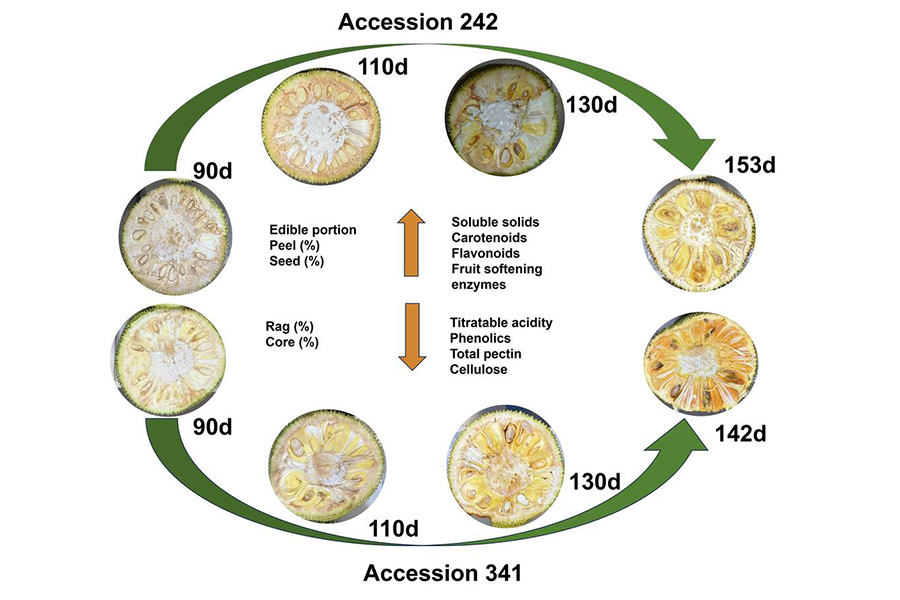
New research on two jackfruit genotypes in Northern Territory provides perspectives on how maturity and ripening changes the quality of jackfruit. In this study, jackfruit was harvested at three different maturity stages at 20 days interval starting from 90 days after flowering. Fourth stage was judged by the presence of dull hollow tapping sound – traditionally used maturity indicator of jackfruit. Fruit could not be harvested beyond stage IV due to significant decline in quality, making them unsuitable for harvesting and further quality analyses. Following the standard practices, fruit were left to ripen at 25°C for 2-3 days-until the production of peculiar jackfruit odour.
As the fruit maturity and ripening advanced, the edible portion increased while the relative proportion of less desirable components that is core and rag decreased. This shows that with increase in fruit maturity, jackfruit becomes more ‘usable’. Colour of whole fruit and bulbs is an important indicator of jackfruit maturity. During earlier stages, the colour of bulbs was towards whitish or greenish hues which changed to vibrant yellow and orange at full maturity. This is due to production of pigments like carotenoids which not only improve the visual appeal of the bulbs but also add nutritional value.
Flavour is another crucial component which is affected by the balance between sugar and acid content. With the increase in fruit maturity and ripening, the natural sugars accumulated, and acid content decreased due to natural process of fruit respiration. It results in higher sugar-to-acid ratio and thus a sweeter jackfruit. However, the components (pectin and cellulose) responsible for firmness of jackfruit bulbs tend to breakdown by the action of several enzymes resulting in sweet, soft and ready to eat fruit.
By understanding these changes during fruit maturity and ripening, growers and consumers can select the ideal stage to harvest jackfruit: whether for cooking, direct consumption or value-added products. So, whether you are a farmer or a consumer, these findings pave a way towards better practices, tastier results and much needed future research on jackfruit maturity standardisation.
Weaner management at Lakefield Station
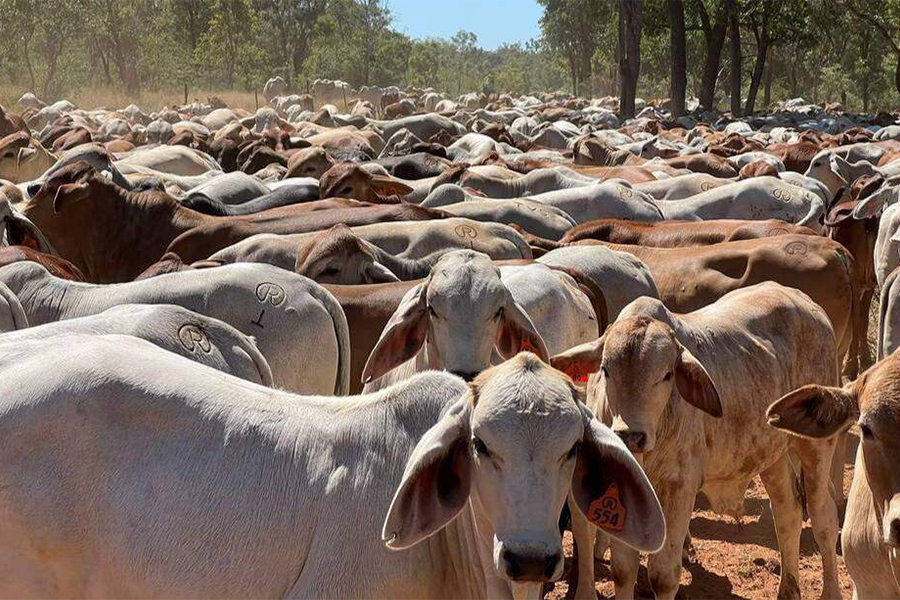
Last year, Livestock Industries extension officers travelled to Lakefield Station to chat about their weaner management strategies. A family based in the Katherine region have shared their years of experience managing a property which has been captured in a detailed case study, funded by MLA and destined for the next edition of the MLA Weaner Management Handbook.
Along with their daughters Tahlia, Chelsea and Kirra and son Hayden, Garry and Michelle Riggs have transformed what was once a bare block with only boundary fences on three sides, into a productive station running 7,500 Brahman cattle (and a small composite herd).
Since developing property management plans in 2002, the Riggs have continued to evolve these, as impressively, their five-year goals were met within three years, while their 10-year goals were achieved within five years. The Riggs are now able to utilise almost all their grazing suitable country, with 90% of Lakefield being within 3km of a water point, and the remaining 10% within 5km.
Read the full case study on MLA-Northern-beef-productivity-Lakefield-case-study-July-2024.pdf.
Rangeland Management Course
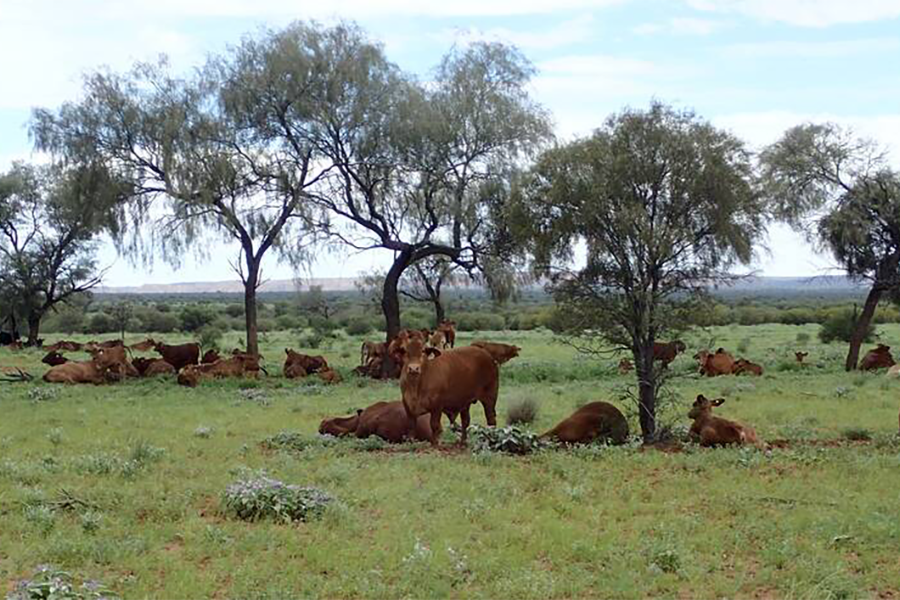
As you prepare to welcome your new team, consider incorporating our free, one-day Rangeland Management Course into your 2025 induction program. This hands-on course provides a great introduction to local pasture species, rainfall patterns, cattle nutrition, biosecurity, weeds, and poisonous plants—specifically designed for Central Australia and directly relevant to daily station work.
Jess, a second-year ringer, shared, “I wish I’d done this in my first year—it would have changed my perspective on everything.”
Course Dates & Locations:
Monday 17th February, Old Man Plains Research Station
Tuesday 25th February, Erldunda Roadhouse
Wednesday 5th March, Old Man Plains Research Station
Wednesday 12th March, venue north of town (TBC)
Booking Details:
Please book by calling Alison Kain (8951 8101) or Georgia Anderson (8951 8136), or email Livestock.Extension@nt.gov.au by the week prior. Minimum 5, maximum 15 participants.
We can also bring the course to your location! We provide all materials; you’ll need a suitable space, access to a nearby paddock for species identification, and accommodation for 2-3 facilitators.
While the course is designed for first- and second-year staff, we welcome more experienced team members to join and share their local knowledge. Courses are available upon request throughout the year.
New Fisheries Compliance Team launches compliance vessels to safeguard our waterways
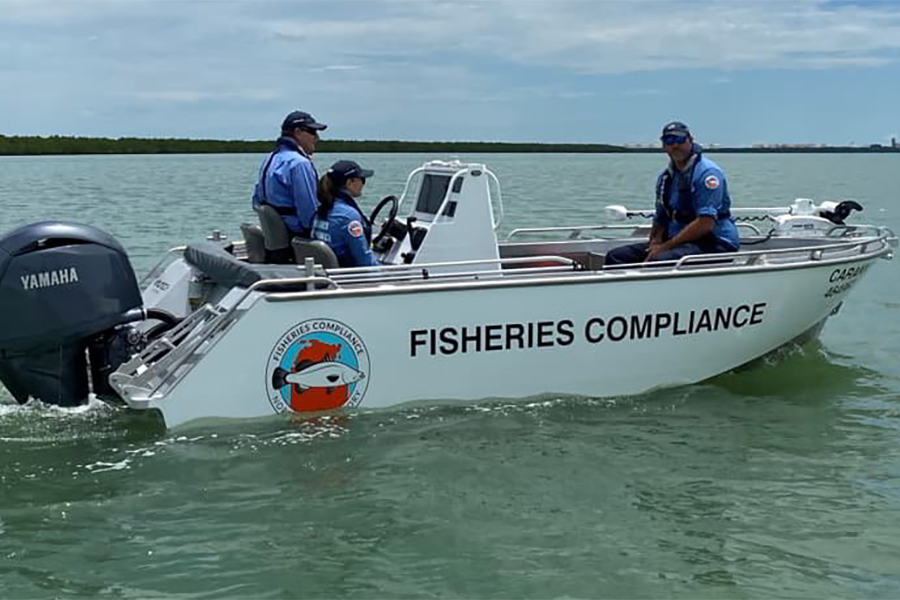
The Fisheries NT compliance team officially launched two compliance vessels, the Caranx and the Longtail.
These vessels are a part of a broader initiative to enhance compliance measures, promote sustainability, and preserve our fisheries.
The Caranx vessel will expand the range and operational capacity of the Fisheries Compliance Unit, which has been actively monitoring recreational and commercial fishing, as well as Fishing Tour Operators, since its establishment in March 2024.
The unit plays a crucial role in ensuring compliance with possession limits and fisheries legislation, working to protect the Territory's valuable aquatic resources. Collaborating with agencies such as Aboriginal Marine Rangers, the Australian Fisheries Management Authority (AFMA), and Fisheries Inspectors, the Fisheries Compliance Unit helps identify and respond to compliance risks across the Darwin region and remote areas of the NT. The introduction of the Caranx vessel significantly enhances the Unit’s ability to patrol rivers and remote waterways.
Additionally, the Longtail vessel has been retrofitted with advanced compliance equipment, extending its capabilities for coastal operations up to 30 nautical miles offshore. The Mallarra vessel, now equipped with thermal and night vision technology, provides further support for both compliance enforcement and research activities.
On-water patrols and inspections are vital in preventing illegal activities, promoting sustainable fishing practices, and maintaining healthy fish population. By enhancing fisheries compliance and protecting vital waterways, these efforts aim to secure the long-term sustainability of the NT’s fishing industry, preserving its rich natural resources for future generations.
Introducing the Department of Agriculture and Fisheries new 2025 Graduates
Tasmyn Zbasnik, Fisheries Division
“Fun fact about me is I’m learning how to crochet and have been crocheting some plushies, like a cat and bunny. And my partner and I have been going to a social dance each week and learning how to swing dance (like Charleston etc).
I’m originally from Brisbane, Queensland, and only moved up to Darwin just before Christmas. I studied Bachelor of Veterinary Technology and Bachelor of Science (Biological Sciences).”
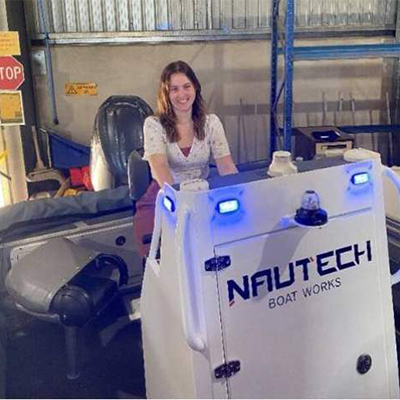
Isabella Paino, Biosecurity and Animal Welfare Division:
“I am from northern Queensland, and I just moved to the NT for this amazing opportunity.
I have studied a Bachelor of Biological Science with Wildlife Ecology at QUT in Brisbane. A nature enthusiast, always taking photos of plants, insects, fungi, or animals and loves tree frogs. “
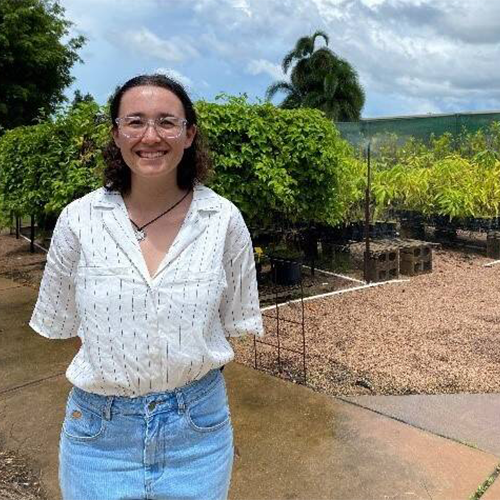
Abbey Keles, Agriculture Division:
” I have relocated from Victoria for the grad program after finishing up my Honours in Environmental Science last November.”

If you see these new faces, be sure to give them a warm welcome.
The department is looking forward to the contributions of our new team members.
Workforce Services HR Business Partner update
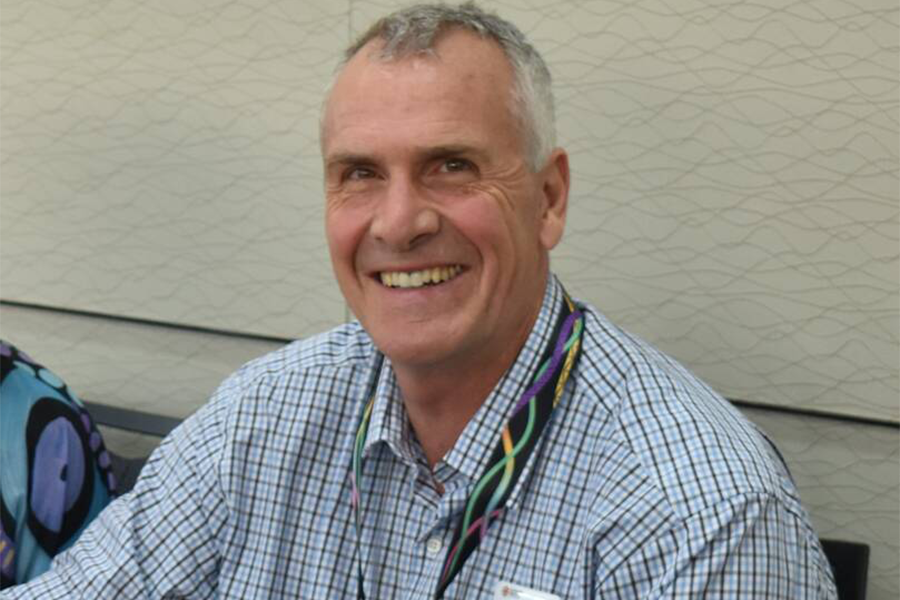
Now that everyone appears to be settling into the new year, it is a good time to introduce Department of Agriculture and Fisheries (DAF) HR Business Partner (HRBP), Sheldon Smith. Sheldon has been in the HRBP role since 2021 and having previously supported the Departments of Education, Health and Territory Families, Housing and Communities.
The HRBP role includes being a point of contact and trusted advisor and partner to agency executives, as well as providing strategic workforce services support and linkages across all HR functions. The HR Services Portal is the fastest way for your requests to be actioned by the Workforce Services team and to speak with a HR team member directly call 1800 CALL HR (1800 225 547).
Sheldon will be hot-desking at Berrimah Farm every Wednesday located in the JEB on the first floor, Sheldon always has his door open for any HR questions or discussions, or you could just pop by and say g’day. Sheldon can be contacted Sheldon.Smith@nt.gov.au or 0418 964 550.
Keep up to date with what’s happening in Workforce Services. Subscribe now!
Give feedback about this page.
Share this page:
URL copied!